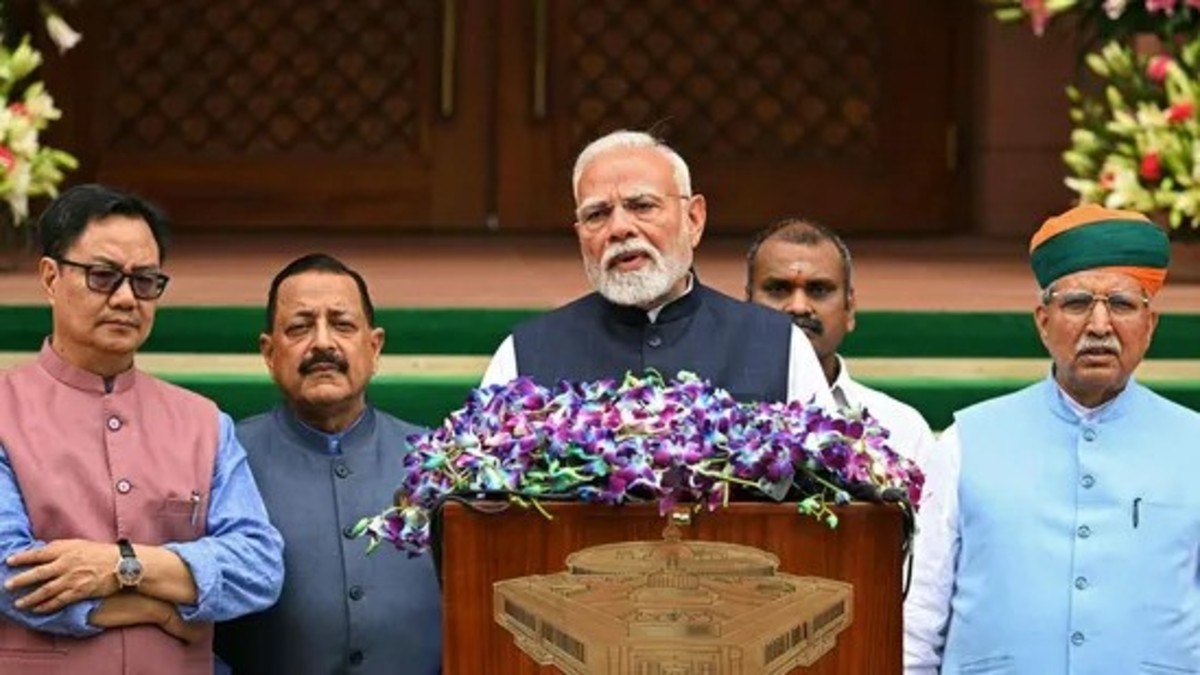As the Monsoon Session of Parliament opened on July 21, 2025, a flurry of bills descended across both Houses. From maritime reform to sports governance. Over a six-week span, lawmakers will now grapple with eight new bills and seven pending ones, charting a course for India’s economic and strategic vision towards a Viksit Bharat by 2047.
Let’s take a sector-by-sector breakdown of the most consequential legislation, the thinking behind it, and how it reflects National Democratic Alliance (NDA) 3.0’s vision.
When it comes to economic reforms, the idea seems to be a 3S approach. Simplify, Stimulate and Scale Up. The Income Tax Bill, 2025, first introduced in February and referred to a Parliamentary Committee, this bill aims to simplify the archaic Income Tax Act of 1961. Stripping out outdated clauses, simplifying provisions and enhancing compliance.The Taxation Laws (Amendment) Bill, 2025, and the Manipur GST (Amendment) Bill, 2025, also await passage.
Why is this so important?
India’s mission to boost ease of doing business relies on an efficient, transparent tax system. Simplified laws are expected to reduce litigation, promote compliance, and democratise access for small taxpayers. Presenting updated figures on national debt, GST collections and non-performing assets (NPAs) underscores the administration’s preoccupation with fiscal health and macroeconomic resilience. These reforms feed directly into the Viksit Bharat 2047 narrative — building a modern economy through predictable governance.
Then comes the Maritime Laws with the objective of replacing colonial legacies of another era. This overhaul replaces the Indian Lading Act of 1856 with a modern framework aligned with global shipping norms. Introduced via Lok Sabha earlier, it won Rajya Sabha clearance on July 21, 2025, paving the way for presidential assent. Union Minister Sarbananda Sonowal emphasised that this shift is a bold step away from colonial relics towards a “Swarnim Bharat”.
Impact Shorts
More ShortsThe law aims at clarity, ease of doing business, lower litigation, and enhanced alignment with India’s global trade ambitions, reaffirming the strategic vision of leading “whoever rules the waves”. Modernising shipping law isn’t bureaucratic housekeeping; it supports Make in India, export competitiveness, and positioning India as a maritime hub.
Sports governance seems to be all about setting new standards. The National Sports Governance Bill, 2025, and the National Anti-Doping (Amendment) Bill, 2025, were introduced on July 23 by Minister Mansukh Mandaviya. This pair aims to revamp sports oversight. The first will set up a central regulatory body for transparency in federations like the BCCI, while the second will aim to expand anti-doping authority.
This is of vital importance, as India’s sporting aspirations — especially its looming 2036 Olympics bid — demand a clean, professional and globally credible governance system. Disrupting the BCCI’s dominance and enhancing accountability reflect a purposeful push towards systemic reform. Sports leadership is emerging as a national priority — one aligned with a proud, competitive Global India mindset.
A suite of bills — the Mines & Minerals (Development and Regulation) Amendment Bill, 2025, and the Geoheritage Sites & Geo-Relics Bill, 2025 — focuses on sectoral modernisation. These are aimed at facilitating resource efficiency, protecting heritage zones, and empowering premier educational institutions. With mining reforms tied to private investment and economic readiness, and geoheritage protection dovetailing with tourism and environmental commitments, these bills build cohesive national infrastructure.
Moving on to parliamentary digitalisation and electoral updates, new rules mandating digital attendance via devices and a push for multilingual digitalisation mark a drive to modernise parliamentary procedures. Also, a proposed resolution to extend the President’s Rule in Manipur flags governance urgency in sensitive regions. These measures aim to bring transparency, accountability, and operational efficiency — fundamental to democracy and the rule of law.
There’s much brouhaha over the Fake News Bill, with much howling over the balance of speech and security.
Last week’s leaked draft of the Misinformation & Fake News (Prohibition) Bill, 2025, sparked legal alarms. The government reacted by pulling the draft for redrafting, indicating sensitivity to civil liberties concerns. Why so cautious, you ask? Well, the bill reflects the struggle to stem disinformation online — vital for national security — yet must avoid constitutional excess of any kind. The government’s acknowledgement of flaws and willingness to redraft demonstrates responsiveness.
There is also state-level activity running parallel to the national session, with Bihar unveiling 12 bills in its own Assembly, covering a skill university, municipal autonomy, land conversion protocols, GST updates and the Janaki temple trust. States are now mirroring the Centre by targeting education, infrastructure, local governance and religious trust regulation. All of this suggests a federal sweep of reform.
So what is the bigger picture here? The modular vision for 2047? Well, three themes stand out.
1. Structural Modernisation: From tax to shipping to parliamentary systems, these bills are reorganising foundational institutions.
2. Global Integration: Bills in shipping and sports are clearly geared towards India’s international standing and stature.
3. Governance and Rights Friction: The fake-news redraft and federal-provincial overlap reflect the enduring tension between authorities and liberties.
Collectively, the session so far illustrates the government’s dual focus on administrative reform and global ambition, anchored in the 2047 vision. While this session is marked by acrimony — debates around Operation Sindoor, terror threats, Bihar’s electoral roll revamp, and even Donald Trump’s comments threatening to derail business — the government seems determined to advance legislative reform, believing that modernisation can co-exist with political contestation.
India’s Monsoon Session represents more than simply a legislative sprint. It is an institutional inflection point. Crunchy tax law, post-colonial shipping rules, tighter sports governance and digital democracy are all stakes in the ground for an India racing towards 2047.
The author is a freelance journalist and features writer based out of Delhi. Her main areas of focus are politics, social issues, climate change and lifestyle-related topics. Views expressed in the above piece are personal and solely those of the author. They do not necessarily reflect Firstpost’s views.


)

)
)
)
)
)
)
)
)



